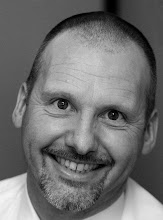
One of my colleagues was late arriving for a meeting. She was flustered and apologetic. Almost immediately she was asked to account for actions allocated in the last meeting. She struggled, despite having done the work. It looked like she was making it up on the spot - others had done less but made a better job of giving and account of the little they had done.
When I spoke to her later, Tracy told me she'd had problems with her childminder and had to drop her son at school herself. Her mind was 'all over the place'. Here is the question I suggested she might have asked herself before getting out of the car:
Am I OK?
I don't like complicated approaches to personal development or problem solving. By asking ourselves a simple three word question we are allow ourselves the opportunity to take charge of our own destiny.
So what would Tracy have answered? She would have said 'No, I'm not OK, I'm late and I feel unprepared'.
Here's the next question:
What's My Plan?
Tracy may have said, 'I need to be ready for the meeting - so I need to be in control, calm and anticipate what's going to happen' So her plan may have been to sit and gather her thoughts running through her apology for lateness, the topics she might have to cover in the meeting (and the answers she might give to questions), and once she'd rehearsed how she was going to get through the door without seeming out of control, she might sit still for just one minute until she could confidently answer the third question:
Who is in charge of me?
What!? I hear some of you ask me. But how often do you feel at the mercy of events? How often do you feel truly in charge of what is happening?
Even when bad things happen we can all choose how to respond. So when Tracy found circumstances messing up her day, she could have decided to take action there and then by phoning a colleague who she knew was in the meeting and who could pave the way for her apology. She could have added a few extra minutes on to her estimated time of arrival to give herself breathing space and time to relax instead of hurtling along the motorway in blind panic.
White Space
Finally many of you will remember when US President Ronald Reagan was shot in 1981. Malcolm Gladwell talks, in his book Blink, about how Reagan's bodyguards could not have been any better trained nor better equipped to look after him. But he still got shot.
After watching hours of video tape again and again the agents learnt there was simply nothing they could have done. There was simply not time enough available to react to the threat before he'd pulled his gun and fired. This simple fact radically altered the way secret service agents protected their VIPs. They introduced the concept of 'white space', simply meaning time to react, time to allow all the training to kick in.
When my colleague Tracy burst into the meeting in a rush, she had left no white space for herself, she was as close to events as it was possible to be - and it showed.
By asking those three simple questions throughout each day as you move from task to task, or meeting to meeting, you give yourself White Space and make sure you have the chance to be best you can be at that moment:
Am I OK?
What's my plan?
Who's in charge of me?
When my colleague Tracy burst into the meeting in a rush, she had left no white space for herself, she was as close to events as it was possible to be - and it showed.
By asking those three simple questions throughout each day as you move from task to task, or meeting to meeting, you give yourself White Space and make sure you have the chance to be best you can be at that moment:
Am I OK?
What's my plan?
Who's in charge of me?

No comments:
Post a Comment